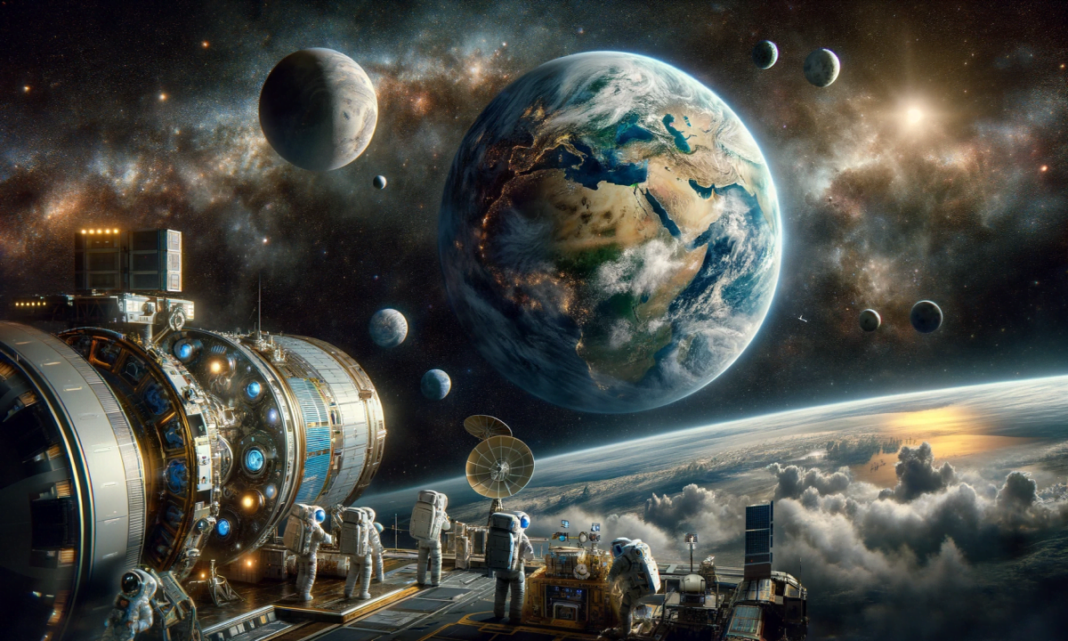The allure of the unknown has always been a powerful force for humanity, propelling us to explore, discover, and push beyond our perceived limits. Space exploration, in particular, stands as one of the most challenging and inspiring ventures humans have ever undertaken. It is a journey that not only seeks to uncover the vast mysteries of the cosmos but also to reflect on our place within it.
The Early Days of Space Exploration
The space age began in earnest in the mid-20th century, a time marked by rapid technological advancements and a fierce competition for supremacy in space between the United States and the Soviet Union. This era saw humanity’s first forays into space, including Yuri Gagarin’s historic orbit around the Earth and the Apollo moon landings, which remain among the most significant achievements in human history.
The Evolution of Space Missions
Since those early days, the scope and ambitions of space exploration have expanded dramatically. The International Space Station (ISS), a symbol of international cooperation, orbits Earth with a constantly rotating international crew. Robotic missions, like the Mars Rovers and the Voyager probes, extend humanity’s reach, exploring distant planets and the outer reaches of our solar system, sending back invaluable data about our neighboring planets.
The Role of Private Sector in Space Exploration
In recent years, the private sector has taken an increasingly prominent role in space exploration. Companies like SpaceX, Blue Origin, and Virgin Galactic are not only reducing the cost of space travel with innovations like reusable rockets but are also pioneering the development of space tourism and the potential colonization of other planets.
The Importance of Space Exploration
At its core, space exploration is about more than just satisfying our curiosity or advancing national prestige. It is a vital endeavor that has led to significant technological advances with practical applications on Earth. Satellite technology, for example, has revolutionized communication, navigation, and our ability to monitor environmental changes and natural disasters from space.
Furthermore, space exploration challenges us to solve complex problems, driving innovation in areas as diverse as materials science, robotics, and human health. It’s a testament to our ability to work together towards common goals, transcending national boundaries and fostering cooperation among nations.
The Future of Space Exploration
Looking forward, the future of space exploration is bright with possibilities. Plans to return humans to the Moon, this time to stay, are already underway, with NASA’s Artemis program aiming to establish a sustainable human presence on the Moon by the end of the decade. This ambitious goal is not just about revisiting our nearest celestial neighbor but about testing the technologies and capabilities needed for the next giant leap: human exploration of Mars.
Moreover, the launch of the James Webb Space Telescope has opened new horizons in our understanding of the universe. By peering back in time to the early universe and studying the atmospheres of distant exoplanets, we stand on the brink of potentially discovering the first signs of life beyond our planet.
Conclusion
Space exploration is a remarkable human endeavor that reflects our unyielding spirit of discovery and our relentless pursuit of knowledge. It challenges us to think big, to imagine a future not just on Earth but among the stars. As we continue to explore the vastness of space, we do so with the understanding that the journey itself enriches our society, catalyzes technological advancements, and unites us in a shared quest for understanding our place in the cosmos.
5 Engaging FAQs
1. What motivates countries to invest in space exploration?
Countries are motivated by the desire for scientific discovery, national prestige, economic benefits through technological advancements, and the strategic advantages of satellite technology.
2. How does space exploration impact our understanding of Earth?
Space exploration has provided us with a unique vantage point to observe Earth, leading to advancements in meteorology, climate science, and our understanding of Earth’s place in the universe.
3. Are there any risks associated with space exploration?
Space exploration involves risks such as the physical and psychological health of astronauts during long-duration missions, potential accidents during launch or re-entry, and the financial risk of costly missions.
4. How can the average person participate in space exploration?
Individuals can participate by following and supporting space missions, engaging with educational content, pursuing careers in STEM fields related to space exploration, and even participating in citizen science projects that support astronomical research.
5. What is the significance of finding water on other planets?
Discovering water on other planets is crucial because it not only indicates the potential for past or present life but also provides resources that could support future human exploration and habitation.

Can you be more specific about the content of your article? After reading it, I still have some doubts. Hope you can help me.